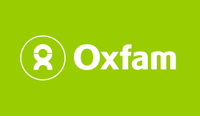TERMS OF REFERENCE FOR CONDUCTING A ZIMBABWE NATIONAL BUDGET ANALYSIS FOR THE 2024 FINANCIAL YEAR.
Job Description
1.0 Introduction
Oxfam is a global movement of people who won’t live with the injustice of poverty . Together we save and rebuild lives. We help people build better lives for themselves. We speak out on the big issues that keep people poor, like inequality, discrimination against women and climate change, and we won’t stop until every person on the planet can live without poverty. In Southern Africa, including Zimbabwe, Oxfam’s focus is to respond to four sets of development issues: Unjust Economic models that perpetuate inequality; Gender inequalities; Climate crisis; and humanitarian needs.
Background to the Budget Analysis
Zimbabwe’s development agenda is defined under the National Development Strategy 1 (NDS1), and several Global and Continental Policy frameworks including the Sustainable Development Goals (SDGs), United Nations Framework Convention on Climate Change (UNFCCC), Paris Agreement, Sendai Framework on Disaster Risk Reduction, The Convention on the Elimination of All Forms of Discrimination Against Women (CEDAW), United Nations Convention on the Rights of the Child, Abuja commitment of allocating at least 15% of total budget to health and the Maputo Protocol etc. NDS1 has 14 thematic priorities and strives to build a resilient, inclusive, and sustainable economy, that integrates every citizen in the country’s development process. The 2024 National Budget Statement presented on 30 November 2024 seeks to accelerate the country’s quest to become an upper middle-income country by 2030. The 2024 National Budget is premised on nine priority areas as follows:
• Economic Growth and Macro-Economic stability;
• Supporting Productive Value Chains;
• Infrastructure, ICTs, and Digital Economy;
• Youth, Sport, Arts and Culture;
• Women, Gender Equity and SMEs;
• Devolution and Decentralization
• Human Capital Development, Well-being, and Innovation;
• Effective Institution Building and Governance; and
• Image Building, Engagement and Re-engagement including Arrears Clearance and Debt Resolution.
Duties and Responsibilities
2.0 Rationale for Budget Analysis
Budgets are the most tangible expression of government’s real policy priorities. Governments may issue policy statements and policy papers, but it is in government budgets that we see the most practical commitments to reducing inequality and ending poverty, inclusive development, advancing gender justice, addressing the climate crisis, and Disaster Risk Reduction being delivered for the benefit of vulnerable Zimbabwean people. These decisions relate both to the spending plans and priorities selected and, equally importantly, those not selected; and they also relate to the plans to finance these plans and priorities from tax and other revenues to be paid by citizens and businesses. The budget translates a government’s manifesto, policies, and goals into decisions on how to raise revenue, and how to use this money to meet the country’s competing needs. The budget directly or indirectly affects the lives of all within a country, with the money government spends being the government’s most powerful economic tool to meet the needs of the people, especially those who are poor and marginalized. Universities, research institutes, the media and development partners all have a legitimate interest in being able to track and assess government revenue-raising and spending in different sectors, to be able to play constructive roles in their different spheres. Policymakers and elected representatives need to be able to assess the appropriateness of sector and aggregate spending plans considering policy priorities, to assess their implementation, and to use these assessments to guide future policy, spending and revenue-raising directions.
3.0 Purpose
Since government budgets are the most tangible aspect of public policy it is important for all stakeholders – outside and within government – to be able to understand and analyze them, to assess the direction of policy and the quality of policy implementation. This especially applies to such policy areas as local infrastructure and service delivery which depend critically on the level and quality of public spending. The budget is therefore a good indicator of the level of commitment of government to implementing international and national obligations to its citizens. Oxfam in Zimbabwe intends to conduct an analysis of the Zimbabwe 2024 National Budget with a focus on the extent to which the budget advances economic justice (equality), gender justice, climate justice and humanitarian concerns.
Scope of Budget Analysis
The budget analysis will focus on four thematic areas of Economic Justice (Inequality), Gender Justice, Climate Justice and Humanitarian (Disaster Risk Reduction) to include all years under NDS1. All stakeholders must be concerned with the following questions around the national budget and spending quality:
i. Efficiency: Is money being spent to ensure greatest impact per thousand people, or is there unnecessary waste or duplication?
ii. Equity: Are geographic spending patterns ‘fair’? Do variations in per capita spending in different sectors reflect differing relative poverty and deprivation levels across regions, townships, and villages?
iii. Effectiveness: Are relative sector spending patterns aligned with relative national policy priorities?
iv. Transparency: Are budget revenue and spending decisions made on a clear basis, that is well documented and allows for interrogation and accountability, both from inside government and by citizens and civil society?
Specific Objectives
i. Assess the extent to which the Government of Zimbabwe is aligning the national budget to her own development planning priorities within the four thematic areas of economic justice, gender justice, climate justice and humanitarian concerns.
ii. Ascertain any structural, equity, reach, value chain and other challenges that may compromise efficiency, effectiveness and transparency in public spending of citizens.
iii. Identify the existing public finance related bottlenecks in line with adequacy, efficiency, effectiveness, equity, transparency, and accountability.
iv. Provide clear recommendations for inclusive growth and development, gender equality, climate justice and social safety nets.
v. Amplify the voices of the vulnerable and influence deliberations and decision-making during budget debate in parliament.
4.0 Methodology
The study will be a combination of desk review, field visits and meetings with key stakeholders. In doing this work, the consultant will develop tailor-made tools to collect and analyze the needed information, which will be validated by stakeholders.
The consultant will be responsible for conducting the following activities in accordance with the terms and conditions of the consultancy contract:
i. Develop appropriate methodology for the study including deciding on specific parameters, indicators to be analysed and incorporated in a workplan which will be vetted by the client.
ii. Conduct the study to understand major issues included under section 3. Specifically, the consultant will:
• Conduct a desk review of appropriate documents including those outlined in section 3 and below.
• Conduct KII / meetings with key stakeholders at both national and district levels including representatives from relevant line Ministries, donors, civil society representatives, private sector, etc.
• Facilitate a key stakeholder input and validation meeting on the draft report (venue and participants costs to be paid directly by client).
• Support one engagement meeting with MPs, relevant ministries, and other stakeholders at national level (venue and participants costs to be paid directly by client).
iii. Submit all deliverables as outlined under section 7 following the agreed timeline.
5.0 Proposed documents to be read:
- Zimbabwe Constitution
- NDS 1
- 2024 National Budget Statement
- Sector Policies, Strategies, Plans relevant for Economic, Gender, and Climate Justice, Disaster Risk Reduction.
- National Gender Policy
- National Climate Policy
- Sendai Framework
- Sustainable Development Goals
- Comprehensive Africa Agriculture Development Programme
6.0 Duration of the assignment
This assignment is expected to be completed within a period of 25 days from contract signing.
7.0 Expected deliverables
The consultant is expected to produce the following:
i. An inception report outlining the methodology/approach, work plan with clear timelines on how the assignment will be carried out.
ii. Data collection and analysis tools
iii. Electronic and hard copies of the analysis report (including relevant data tables)
iv. One policy brief based on the critical findings of the budget analysis.
v. PowerPoint presentation on the key findings of the draft budget analysis.
vi. A final report
Qualifications and Experience
8.0 Qualifications and experience of the consultant
The consultant is expected to have the following qualifications:
• A minimum of master’s degree in the following fields: - Social sciences (Economics, Development Economics), Public Sector Financing, Statistics, and other social science subjects Specifically:
o At least 5 years’ relevant work experience in conducting budget analysis and expenditure tracking exercises.
o Extensive experience in public finance management frameworks and public budget formulation and analysis, among others.
o Understanding of/familiarity with human rights-based approach to research and advocacy.
o Demonstrated comprehensive range of analytical skills especially in key macro and micro-economic fundamentals and their application to public policy development and analysis.
o Experience and knowledge in social service delivery issues will be an added advantage.
o Experience in working in the field of Governance and the broader public governance systems will be an added advantage; and
o Demonstrated experience and solid track record in similar assignments will be added advantage.
o Proven understanding of the importance of ethics in research work.
1. Technical offer:
• Technical proposal detailing proposed methodology (max 5 pages).
• At least three traceable referees and references for similar assignments successfully delivered.
• An example of a report from similar work which demonstrates evidence of the skills and experience required. Up to date CV of the consultant(s) and all team members to be available for the assignment.
2. Financial offer:
• Details of charges and expenses in line with proposed methodology in US$, and in compliance with the country’s tax requirements.
How to Apply
3. Application
Interested consultant(s) should send an electronic Expression of Interest (financial & technical proposals) by 5pm on, 7th March 2024 to:
Oxfam in Zimbabwe – 13 Brigadier Atif, Manzil, Mt Pleasant, Harare, Zimbabwe.
Email:Zimtenders@oxfam.org.uk with subject line “ Zimbabwe 2024 Budget Analysis” . The expression of interest should contain:
(i) Technical offer:
• Technical proposal detailing proposed methodology (max 5 pages).
• Detailed work
• At least three traceable referees and references for similar assignments successfully delivered.
• An example of a report from similar work which demonstrates evidence of the skills and experience required.
(Please note that applications will be assessed on a rolling basis).
RO-ZWHRE-24-0034-ZWHRE-0032 RO-ZWHRE-24-0029-ZWHRE-0027
Similar Listings

Consultancy to conduct CARL 2 end of Project evaluation
Oxfam — Harare

Terms Of Reference
Oxfam — Harare

Terms Of Reference
Oxfam — Harare

CALL FOR EXPRESSION OF INTEREST FOR CONSULTANCY SERVICES FOR THE DESIGN AND IMPLEMENTATION OF A CAPACITY DEVELOPMENT PROGRAM FOR SIMUKAI CHILD PROTECTION PROGRAMME
Simukai Child Protection Program — Harare

Location: Harare
Company: Oxfam
Expiry Date: 2024-03-07 00:00:00
